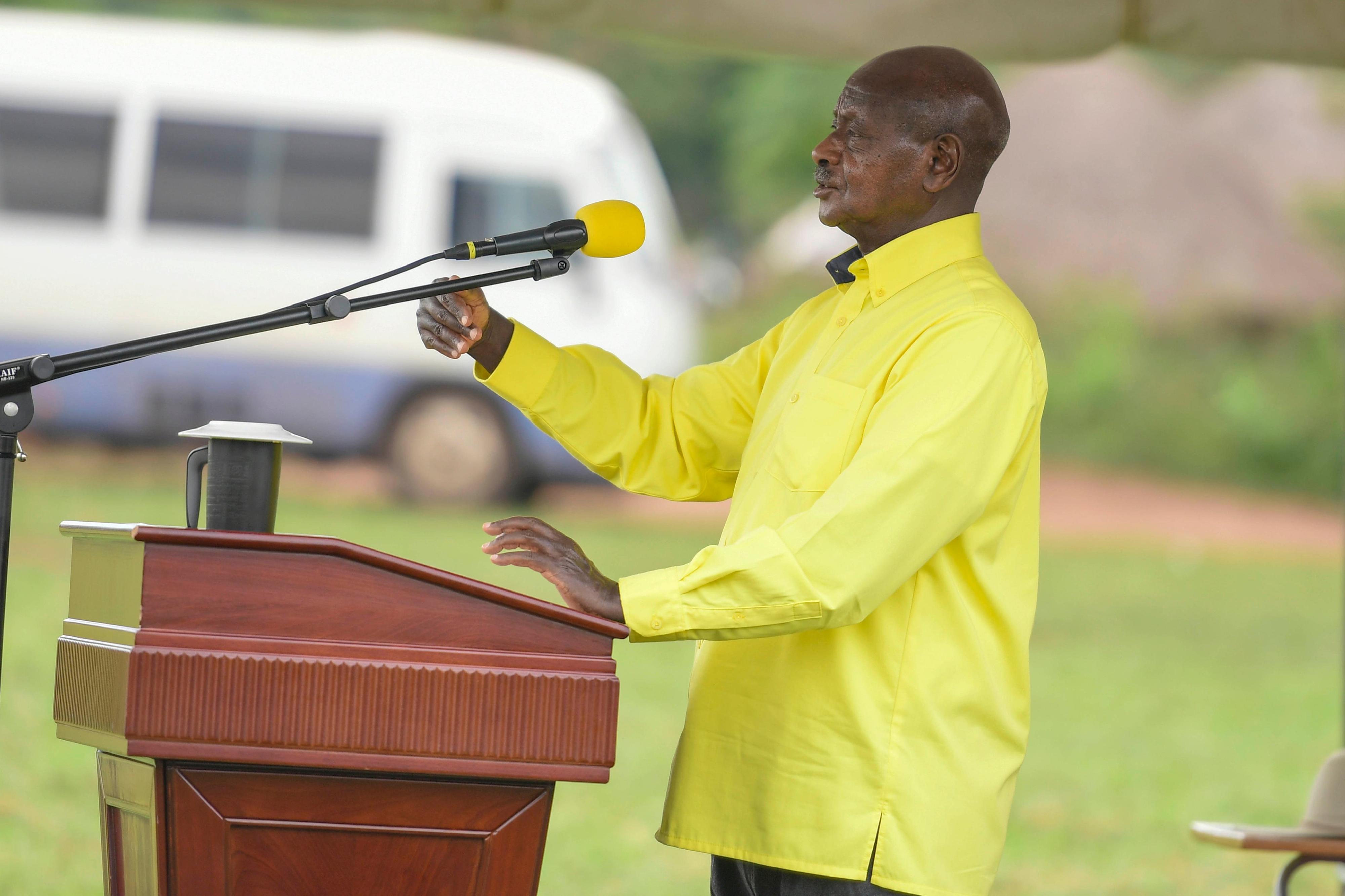Museveni pledges to scrap school fees

President Museveni
What you need to know:
Releasing an evaluation report on the UPE policy last year, Dr Joseph Muvawala, the National Planning Authority executive director, noted that while Primary Leaving Examinations completion rate is at 65 per cent, only 38 per cent of the pupils who enroll in primary survive to Primary Seven.
BY & PATIENCE AHIMBISIBWE
kampala. President Museveni has proposed total scrapping of charges levied on parents in institutions implementing government’s universal education once he is re-elected in the 2021 General Election.
The proposal, contained in his manifesto, recognises that although 10.7 million children are enrolled for primary education, only 2 million transit to secondary school.
“This has mainly been attributed to the re-introduction of school charges in government-aided schools, causing children whose parents cannot afford to drop out. The lack of school feeding has also compounded the problem. We are going to sort out this,” Mr Museveni said.
While promoting his manifesto to NRM leaders from the districts of Apac, Kwania, and Oyam in Apac District on Wednesday, Mr Museveni said he does not believe in school fees.
“There is this issue of school fees. I earlier told your leaders that I don’t believe in school fees for primary, secondary, and technical schools. When I introduced Universal Primary Education, my plan was to give free education,” he told the media on Wednesday evening.
Currently, the government is spending Shs1.2 trillion on UPE and Shs800 billion on Universal Secondary Education (USE).
“What happened to the 7 million children that do not show up in secondary schools? It seems they all dropped out of schools because they could not afford to pay the school fees. I, therefore, appeal to everybody to support my plan for free education. The record of NRM is to solve bigger problems not smaller problems,” he said.
The UPE policy was introduced in 1997 to enable all children from poor background access education. The UPE policy requires parents to contribute scholastic materials such as books, pens, uniform, meals while government pays teachers’ salaries, capitation grant, instructional materials and infrastructures.
However, under this policy, urban schools were allowed to charge money to meet extra costs for power, water and garbage disposal.
“Lunch is a responsibility of a parent. Government only put in place a mechanism through which parents can provide lunch. They can either contribute food or make a small contribution in kind and ensure children have meals at school. That is within the guidelines that urban schools can charge the money,” Dr Cleophus Mugenyi, the commissioner for primary education, said.
“The rural schools, if a toilet has collapsed and inspectors have threatened to close the school, they will not wait for government as the school is closed. They can mobilise locally and put up a toilet” he added.
The State Minister for Higher Education, Dr Chrysostom Muyingo, yesterday told Daily Monitor that the proposal will be discussed with other stakeholders so that once Mr Museveni is re-elected for the sixth time, no child leaves school before completing.




